ABOUT APAD
Who We Are
The Africa Protected Area Directors (APAD) is a network open to the representatives of national authorities of Protected and Conserved Areas (PCAs) operating throughout Africa. APAD aims to develop a common agenda for Africa’s protected areas, foster information sharing, and facilitate collaboration and collective responsibility among Africa’s protected areas directors.
The network is underpinned by an Africa-led agenda that positions protected and conserved areas as the backbone of natural infrastructure. This stance is rooted in the crucial role that protected and conserved areas play in contributing to biodiversity conservation, climate regulation, and delivery of ecosystem services essential for human welfare and livelihoods.
Membership Process
Africa Protected Area Directors (APAD) extends membership to all 54 African countries with government bodies such as dedicated ministries or departments that manage protected and conserved areas and invites key leadership within these bodies to join the network as representatives of their country’s positions and priorities. To get involved and learn more, please contact the APAD Secretariat.
Join our organization and be a conservation champion! By becoming a member, you’ll play a vital role in our ongoing efforts to preserve and protect our planet’s precious ecosystems. Take action with us and be a driving force for positive change in the realm of conservation.
APAD Network Structure & Leadership
The Africa Protected Areas Directors (APAD) network is co-chaired by representatives from Rwanda and Zimbabwe, and their leadership is supported by three specialized working groups, namely Sustainable Financing, Cooperation Mechanisms and Climate Resilience and Disaster Risk Preparedness, each with designated countries guiding their efforts. APAD further has a secretariat function currently hosted by the African Wildlife Foundation (AWF).
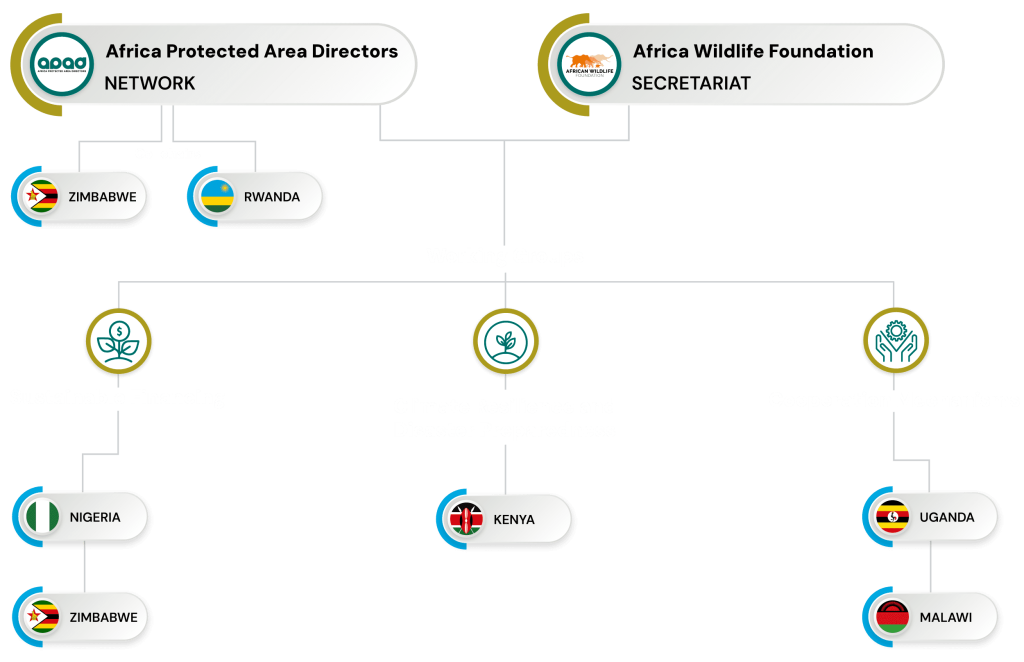
APAD Network Structure & Leadership
The Africa Protected Areas Directors (APAD) network is co-chaired by representatives from Rwanda and Zimbabwe, and their leadership is supported by three specialized working groups, namely Sustainable Financing, Cooperation Mechanisms and Climate Resilience and Disaster Risk Preparedness, each with designated countries guiding their efforts. APAD further has a secretariat function currently hosted by the African Wildlife Foundation (AWF).
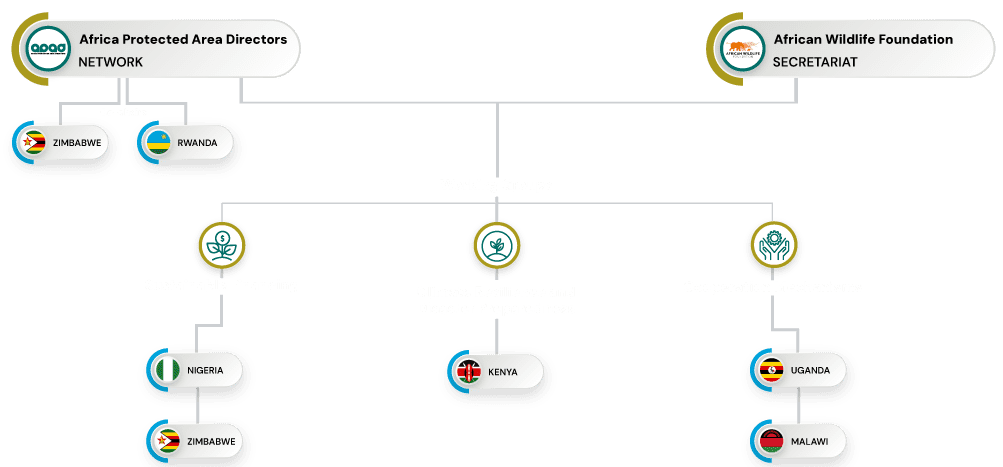
About BMU-APAD Project
The BMU-APAD project, launched in June 2023, is supported by the German Federal Ministry for the Environment, Nature Conservation, Nuclear Safety, and Consumer Protection (BMUV); to enhance cooperation mechanisms among Africa Protected Area Directors(APAD). It seeks to promote APAD’s collaboration with Indigenous Peoples, Local Communities, and Youth as co-implementers of the Kunming-Montreal Global Biodiversity Framework goals and targets and strengthen the role of Protected and Conserved Areas in Africa’s conservation commitments.
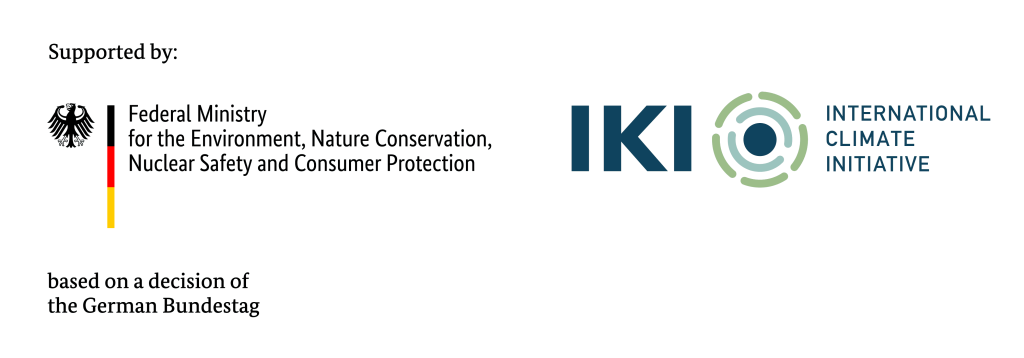
BMU-APAD Project Steering Committee
The BMU-APAD Project Steering Committee, consisting of 16 members representing all African sub-regions, oversees the implementation of APAD’s inaugural project launched in June 2023. The project’s focus is; “Advancing Pan-African Collaboration for Improved Protected and Conserved Area Governance.”
- The committee’s responsibilities include;
- Planning and delivering the Second APAD conference
- Leading consultations with stakeholders (Indigenous Peoples, Local Communities, youth, and state agencies)
- Contributing to knowledge publications
- Conducting behavioral change and educational outreach campaigns through disseminating key messages on various platforms such as social media, websites, and media engagement.
Advancing Pan-African Collaboration for Improved Protected and Conserved Area Governance.
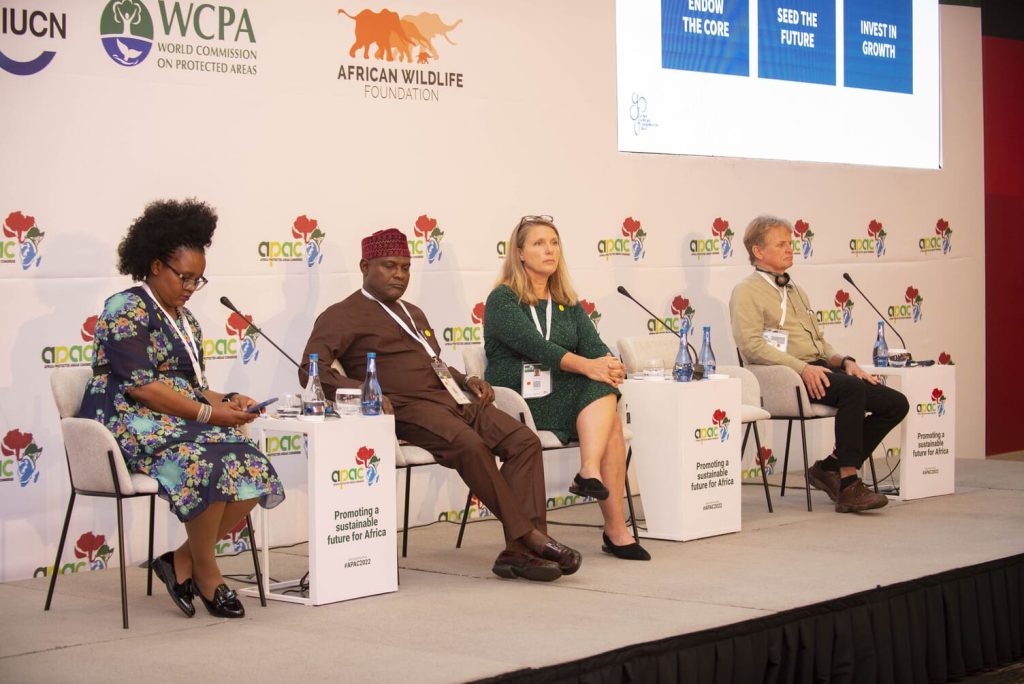
Membership Process
Africa Protected Area Directors (APAD) extends membership to all 54 African countries…
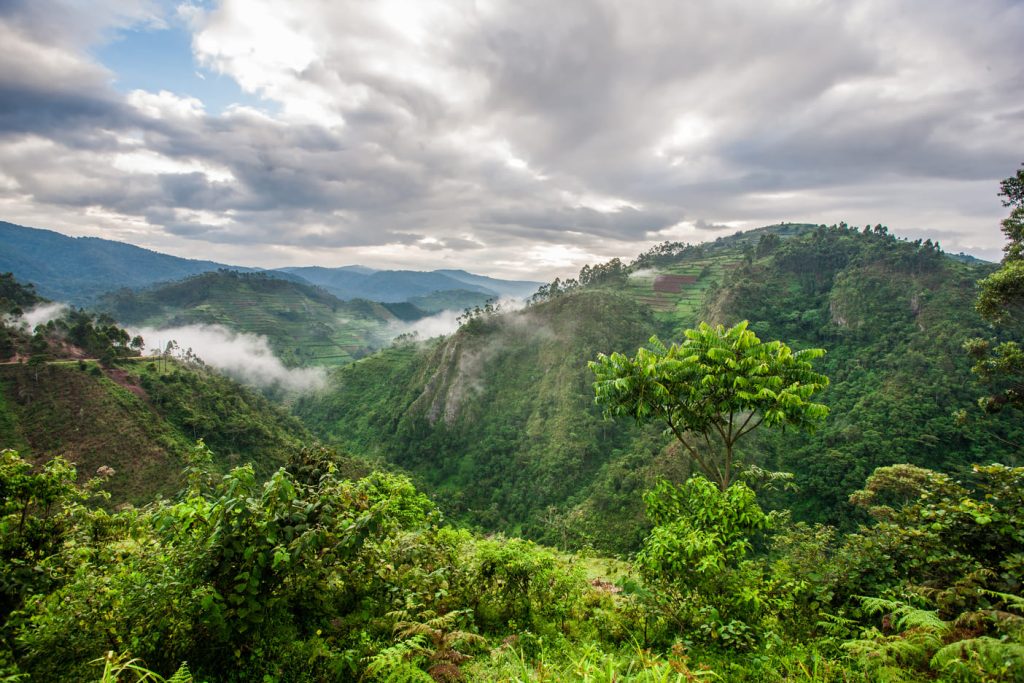
APAD Secretariat
The African Wildlife Foundation (AWF) has served as the secretariat for the…
Join us Today
Take action with us and be a driving force for positive change in the realm of conservation.
APAD Secretariat
As the secretariat for APADs, AWF facilitates and supports engagements in conferences, workshops, and meetings with stakeholders, securing endorsements from African institutions and leaders. The involvement extends to creating linkages with global biodiversity agencies outside the continent, aligning with critical African constituencies such as communities, youth, and women, and supporting the development of transformative initiatives, such as GIS technology integration, with direct benefits to APADs.
About AWF
The African Wildlife Foundation (AWF) is the primary advocate for the protection of wildlife and their habitats as an essential part of a modern and prosperous Africa. Founded in 1961 during the African independence movement to build our capacity to steward our natural resources, AWF articulates a uniquely African vision, bridging science, education, public policy, and field programs to demonstrate the benefits of conservation and build a future for Africa where people and wildlife thrive.

